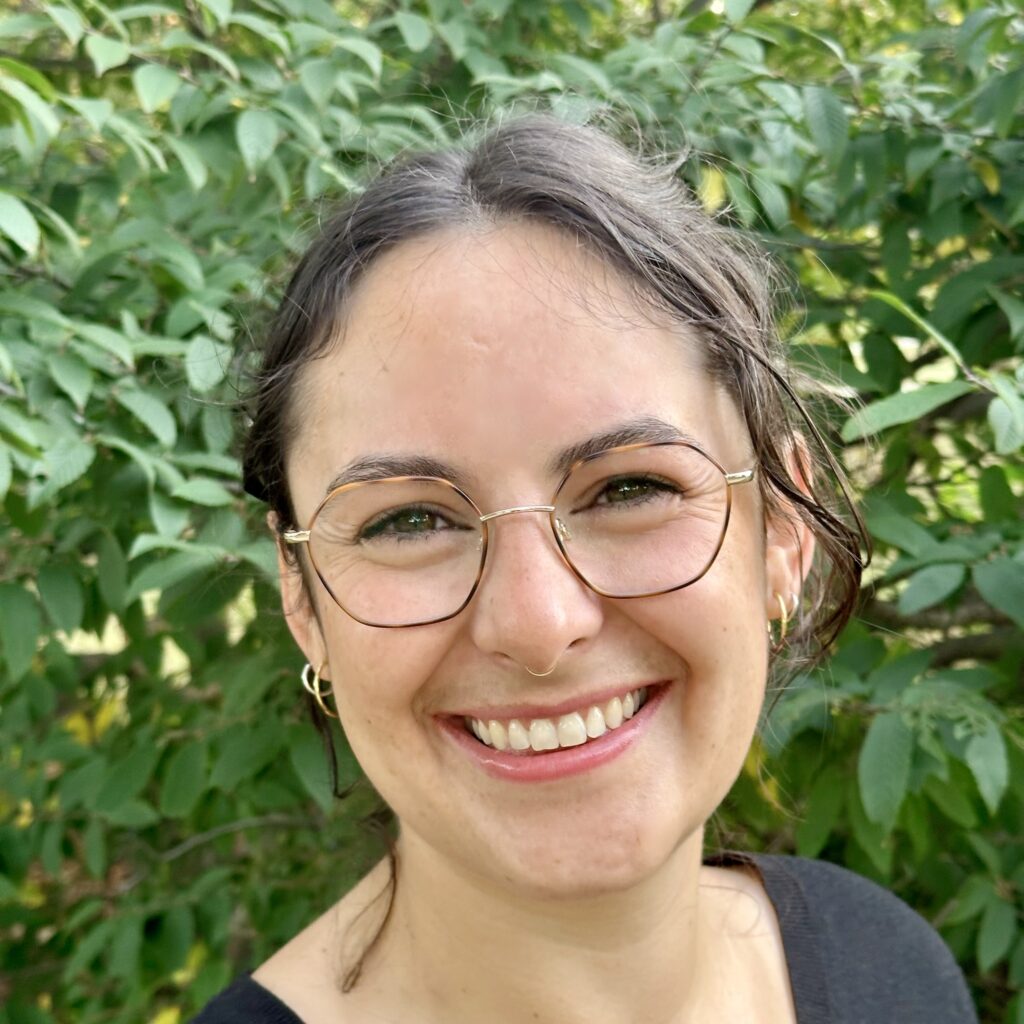
Sara is a psychotherapist at Wildflower. In their integrative clinical practice, Sara draws on Psychodynamic Theory, Internal Family Systems, Somatic Experiencing, and Attachment Theory while using evidence-based interventions from DBT and ACT. Sara works with adolescents, adults, couples, and family units experiencing stressful transitions, including the transition to parenthood, anxiety, mood disorders, trauma, sexual challenges, and relationship challenges. Sara has experience in working with grief and loss, sexual trauma, intimate partner violence, exploring gender and sexuality, and challenges related to immigration/migration. She obtained her Master’s degree in Social Work at Smith College School of Social Work. Read Sara’s full bio here.
What inspired you to pursue a career as a psychotherapist?
When I was in college, I was active in anti-sexual violence organizing on my campus. I studied anthropology at this time and was deeply immersed in exploring power and oppression and the various ways communities are harmed by these systems. I felt a lot of anger and hopelessness at this time, and channelled these into my work supporting my community. I worked for an intimate partner violence and sexual assault crisis center as a housing case manager and in crisis intervention before pursuing psychotherapy. I entered graduate school with the intention of specializing in trauma work, and while this is still a core focus of mine clinically, my areas of interest have expanded since then.
As a psychotherapist, what part of your job is most satisfying?
I have found that the privilege of building longer-term relationships with clients has been the most satisfying part of my job. It’s incredible to walk alongside someone in their journey and be a witness to hard days, relationship ebbs and flows, growth, and joys over time. I have learned so much from the clients I work with, and another one of my favorite parts about being a therapist is that there is always more to learn!
How would you describe your therapeutic approach?
Therapy with me is collaborative, client-paced, and authentic. I’ve mentioned this, but I’ll mention it again – I want to show up in the therapeutic space as myself, and I want clients to feel comfortable doing the same. Depending on the client’s needs, a session may look like exploring a painful memory from the past, practicing a mindfulness technique, learning more about anatomy or desire, reflecting on the past week, or exploring resources to meet a need that I may not be able to meet. In couples work, I employ methods from both the Gottman Method and Emotionally Focused Therapy. Clients have described me as direct, flexible, deeply interested in their story, and welcoming of humor and metaphor in session.
Why do you believe that psychotherapy can help?
I am in the camp that believes one of the most important tools we have in therapy is the relationship between the client and therapist. I believe many of the symptoms clients experience can trace back to early moments of attachment rupture, which can be addressed in a safe, reliable relationship between therapist and client. I know therapy can help because not only have I seen the possibilities for growth of past clients, but I have also learned and grown significantly through my personal therapy.
What are some of your specialties, and what drew you to them?
Much of my work so far has been with trauma survivors, both in the community mental health setting and in IPV crisis centers. I am also clinically interested in gender and sexuality, especially erotically marginalized groups (kink, poly, and trans folks, for example). I think there is a lot to learn about the possibilities of living a pleasurable, values-aligned life from queer theory. My therapeutic work is informed by thinkers like Audre Lorde, adrienne maree brown, and Sara Ahmed.
What is one thing about psychotherapy you wish everyone knew?
While we therapists have studied psychology at a graduate level and have read all the material on x, y, and z, at the end of the day, you still know yourself best. I want clients to know that they are the experts in the room, and they should feel comfortable asking their therapist questions, letting them know if something doesn’t feel right, asking for an additional session if they feel like they need extra support, or giving the therapist other feedback on the therapy throughout the work. We are ultimately here to empower you!
What are your favorite self-care activities?
I am a big believer in the healing power of nature; feeling sunshine on my face, snow on my hands, hearing crunching leaves, and smelling the air after it rains. I try to get outside and move my body every day. I also love cooking, playing board games with friends, and watching movies. Something I heard recently is “in the absence of community care, self-care is insufficient,” and I’ve been thinking a lot recently about how investing in relationships is also a self-care practice.

